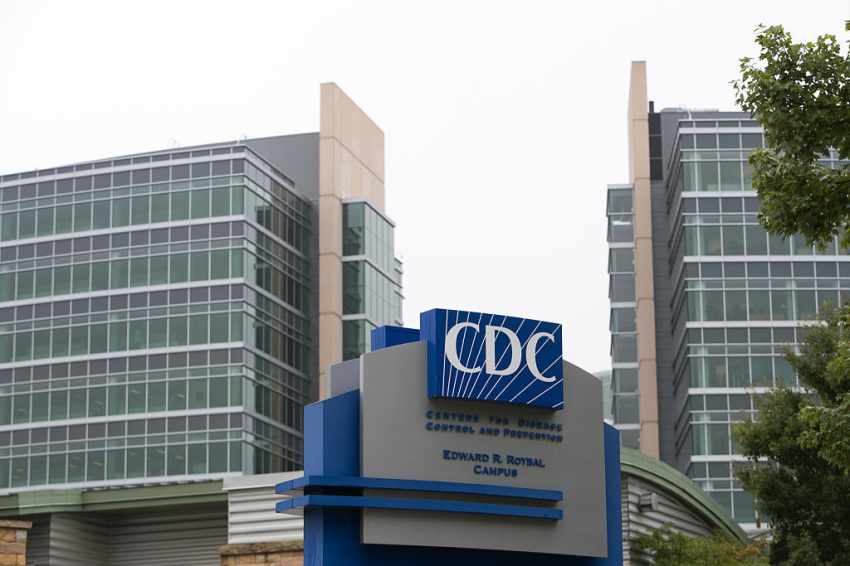CDC data showing uptick in use of abortion pills raises concerns for pro-life advocates

While some pro-lifers are pleased that new data show surgical abortions decreased slightly in 2020, the significant increase in the use of abortion pills to induce miscarriages is raising concern.
The data, released by the Centers for Disease Control and Prevention, recorded 620,327 legally induced abortions reported to the organization from 49 reporting areas. According to the data, the number of abortions and the abortion rate fell by 2% from 2019 to 2020.
However, the CDC warned that abortion data is provided to them on a voluntary basis, and many reporting areas have their own methods for gathering data, meaning they might not collect or provide all of the information the CDC requests.
The findings reflect data from 48 reporting areas sent to the CDC from 2011 to 2020. The data also found that more than 80% of abortions committed in 2020 were done at or before nine weeks gestation, and more than 93% were done at or before 13 weeks.
Women in their 20s accounted for more than half of abortions, with underage girls younger than 15 (under the age of consent) and middle-aged women having the lowest number of abortions, representing 0.2% and 3.7%, respectively. Around 13% of women who had abortions during this timeframe were married.
Missouri had the lowest abortion rate in 2020 at 0.1 per 1,000 women, while Washington, D.C., had the highest at 23 per 1,000. Meanwhile, Texas saw a 3.7% decline, Oklahoma experienced a 24% decline, and Alabama saw a decline of 4.9%. Louisiana also saw a decline of 8.2%.
In a Friday statement to The Christian Post, Michael New, an associate scholar at the pro-life Charlotte Lozier Institute, highlighted how state policy decisions in response to the COVID-19 pandemic likely impacted abortion numbers.
Missouri is among several states, including Texas and Alabama, that quit performing abortions during the pandemic, a likely explanation for why abortion numbers in these areas decreased.
The pro-life researcher noted, however, one area of concern is that the number of chemical abortions (abortion pills, also referred to as medication abortions) increased by 17.9%. Between 2019 and 2020, the percentage of all abortions that were chemical abortions increased from 43.7% to 53.4%.
New likened this increase in chemical abortions to the Food and Drug Administration suspending the in-person requirement to obtain the drugs, making the decision permanent in December 2021. Previously, abortion clinics were required to have an in-office consultation with a woman seeking abortion pills before the drugs were dispensed for an induced miscarriage at home without medical supervision.
“This increase in chemical abortion numbers should concern pro-lifers for several reasons,” New told CP. “Even though CDC data indicated that [surgical] abortions fell in 2020, CDC data found that abortions increased in both 2018 and 2019.”
“An important reason for this increase was the rise in the number of chemical abortions,” he continued.
“Additionally, for part of the COVID-19 pandemic, the FDA allowed women to obtain chemical abortion pills without an in-person medical exam. Tragically, the Biden administration FDA has continued that policy.”
A 2018 report published by the National Academies of Sciences, Engineering, and Medicine states that "complications after a medication abortion, such as hemorrhage, hospitalization, persistent pain, infection, or prolonged heavy bleeding, are rare — occurring in no more than a fraction of a percent of patients."
The report cited research purporting that chemical abortions have an "overall effectiveness rate of 96.7% for gestations up to 63 days (nine weeks)."
New encouraged pro-lifers to oppose the FDA’s rules allowing women to obtain abortion pills without an in-person doctor's visit through “education, legislation and litigation.” In particular, he praised the Alliance Defending Freedom’s recent lawsuit against the FDA.
Earlier this month, ADF announced that it had filed a lawsuit on behalf of multiple medical professionals and organizations in the U.S. District Court for the Northern District of Texas Amarillo Division.
In the suit, ADF argues that the FDA overstepped its authority by approving and later loosening regulations for abortion pills.
"[T]he FDA failed America's women and girls when it chose politics over science and approved chemical abortion drugs for use in the United States," the lawsuit contends. "And it has continued to fail them by repeatedly removing even the most basic precautionary requirements associated with their use."
Samantha Kamman is a reporter for The Christian Post. She can be reached at: samantha.kamman@christianpost.com.



























